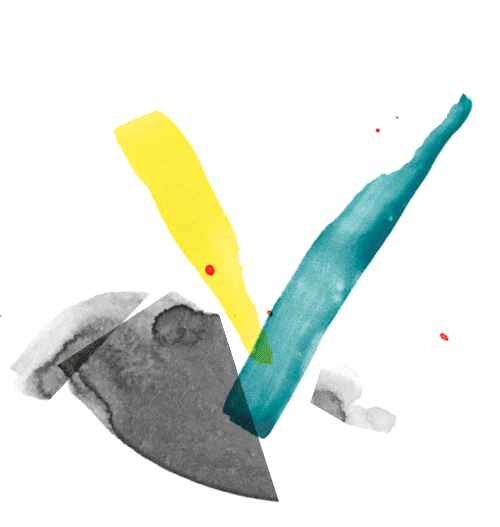

Sign up for our newsletters. You can change the settings or unsubscribe at any time.
Thank you for your subscription. We have sent you an e-mail with a confirmation link.


exp. 1
exp. 2
exp. 3

Francisco Huichaqueo
Venue: Gropius Bau
Francisco Huichaqueo
Born 1977 in Valdivia, CL – lives and works in Concepción, CL
Every Mapuche knows another—a relative, a friend or acquaintance—who is or has been a political prisoner. In retaliation for the defense of their territories against deforestation and other forms of extractivism, the Chilean state continues to prosecute Mapuche activists under a counter-terrorism legislation introduced by the military dictatorship. Chile, where Mapuche filmmaker Francisco Huichaqueo was born, embraces a racialized concept of citizenry, waging a covert and overt war on the Mapuche people. Besieged physically, the Mapuche are nonetheless able to travel spiritually, a process the Mapudungun language calls perimontun (vision or apparition). Cinema grafts itself easily onto the Mapuche ability to inhabit the tangible and the intangible, the reel operating as a portal to the political and spiritual dimensions of the Mapuche world.
For the project Wenu Pelon. Kuifi ül [Ancient Sound. Portal of Light, 2015/20], all creative decisions Huichaqueo made via lucid dreaming, aided by a Machi or spiritual leader, and each film included corresponds to a pewma, or dream. Wenu Pelon is the first glimpse of light at dawn—the most important moment of the Wiñol tripantü, the Mapuche New Year. The sacred blue of dawn is also the color of the Mapuche war flag, used to mark contested territories. Wenu Pelon is an invocation, a spiritual call to liberate those under colonial incarceration—including the looted Mapuche objects being held in museum vaults around the world.
Filmed on the first day of Wiñol tripantü, Kuifi ül [Ancient Sound, 2020] is inhabited by the song of the trutruka, a wind instrument that resonates in the hills and throughout the territory for several days during the ceremony. Within the installation, the sound aims to awaken Mapuche objects—a kultrün, a pifüllka, a metawe—normally in the custody of a German museum, removed from the hands that created them. For Huichaqueo, this temporary encounter between his people’s belongings and their ancient song constitutes a spiritual preparation for their inevitable return to their home, among their people.
Ana Teixeira Pinto/María Berríos
BLM KOREA ARTS
#BlackLivesMatter #BLMKoreaArts
Young-jun Tak
Statement
Grupo Experimental de Cine en acción
Gabriel Peluffo
Drawing
El primer nueva corónica y buen gobierno
Felipe Guamán Poma de Ayala
Chronicle
Género y colonialidad en busca de claves de lectura y de un vocabulario estratégico descolonial
Rita Segato
Essay
Invitation to the Species: Cecilia Vicuña
Tamaas / Cecilia Vicuña
Podcast
Maternidades subversivas
María Llopis
Monograph
By using this website you agree to the use of cookies in accordance with our data privacy policy.

Francisco Huichaqueo
Venue: Gropius Bau
Francisco Huichaqueo
Born 1977 in Valdivia, CL – lives and works in Concepción, CL
Every Mapuche knows another—a relative, a friend or acquaintance—who is or has been a political prisoner. In retaliation for the defense of their territories against deforestation and other forms of extractivism, the Chilean state continues to prosecute Mapuche activists under a counter-terrorism legislation introduced by the military dictatorship. Chile, where Mapuche filmmaker Francisco Huichaqueo was born, embraces a racialized concept of citizenry, waging a covert and overt war on the Mapuche people. Besieged physically, the Mapuche are nonetheless able to travel spiritually, a process the Mapudungun language calls perimontun (vision or apparition). Cinema grafts itself easily onto the Mapuche ability to inhabit the tangible and the intangible, the reel operating as a portal to the political and spiritual dimensions of the Mapuche world.
For the project Wenu Pelon. Kuifi ül [Ancient Sound. Portal of Light, 2015/20], all creative decisions Huichaqueo made via lucid dreaming, aided by a Machi or spiritual leader, and each film included corresponds to a pewma, or dream. Wenu Pelon is the first glimpse of light at dawn—the most important moment of the Wiñol tripantü, the Mapuche New Year. The sacred blue of dawn is also the color of the Mapuche war flag, used to mark contested territories. Wenu Pelon is an invocation, a spiritual call to liberate those under colonial incarceration—including the looted Mapuche objects being held in museum vaults around the world.
Filmed on the first day of Wiñol tripantü, Kuifi ül [Ancient Sound, 2020] is inhabited by the song of the trutruka, a wind instrument that resonates in the hills and throughout the territory for several days during the ceremony. Within the installation, the sound aims to awaken Mapuche objects—a kultrün, a pifüllka, a metawe—normally in the custody of a German museum, removed from the hands that created them. For Huichaqueo, this temporary encounter between his people’s belongings and their ancient song constitutes a spiritual preparation for their inevitable return to their home, among their people.
Ana Teixeira Pinto/María Berríos
COVID-19 VIDEOS
Carlos Motta
Video
I: Junto a las curadoras de la XI Berlin Biennale for Contemporary Art
Renata Cervetto, Lisette Lagnado
Conversation
A World Without Bones
Agustín Pérez Rubio
Memorial to the Sinti and Roma Victims of National Socialism
Dani Karavan
Memorial
„Klaus Eckschen: Hörspiel“
Die Remise
Hörspiel
II: La Solidaridad va Más Allá de un Concepto. Entre las Curadoras de la XI Berlin Biennale
Lisette Lagnado, Agustín Pérez Rubio
Conversation
By using this website you agree to the use of cookies in accordance with our data privacy policy.

Francisco Huichaqueo
Venue: Gropius Bau
Francisco Huichaqueo
Born 1977 in Valdivia, CL – lives and works in Concepción, CL
Every Mapuche knows another—a relative, a friend or acquaintance—who is or has been a political prisoner. In retaliation for the defense of their territories against deforestation and other forms of extractivism, the Chilean state continues to prosecute Mapuche activists under a counter-terrorism legislation introduced by the military dictatorship. Chile, where Mapuche filmmaker Francisco Huichaqueo was born, embraces a racialized concept of citizenry, waging a covert and overt war on the Mapuche people. Besieged physically, the Mapuche are nonetheless able to travel spiritually, a process the Mapudungun language calls perimontun (vision or apparition). Cinema grafts itself easily onto the Mapuche ability to inhabit the tangible and the intangible, the reel operating as a portal to the political and spiritual dimensions of the Mapuche world.
For the project Wenu Pelon. Kuifi ül [Ancient Sound. Portal of Light, 2015/20], all creative decisions Huichaqueo made via lucid dreaming, aided by a Machi or spiritual leader, and each film included corresponds to a pewma, or dream. Wenu Pelon is the first glimpse of light at dawn—the most important moment of the Wiñol tripantü, the Mapuche New Year. The sacred blue of dawn is also the color of the Mapuche war flag, used to mark contested territories. Wenu Pelon is an invocation, a spiritual call to liberate those under colonial incarceration—including the looted Mapuche objects being held in museum vaults around the world.
Filmed on the first day of Wiñol tripantü, Kuifi ül [Ancient Sound, 2020] is inhabited by the song of the trutruka, a wind instrument that resonates in the hills and throughout the territory for several days during the ceremony. Within the installation, the sound aims to awaken Mapuche objects—a kultrün, a pifüllka, a metawe—normally in the custody of a German museum, removed from the hands that created them. For Huichaqueo, this temporary encounter between his people’s belongings and their ancient song constitutes a spiritual preparation for their inevitable return to their home, among their people.
Ana Teixeira Pinto/María Berríos
Expresiones de la locura: el arte de los enfermos mentales
Hans Prinzhorn
Monograph
Grupo Experimental de Cine en acción
Gabriel Peluffo
Drawing
Flávio de Carvalho: Fazenda Capuava
Archive of Lisette Lagnado
Photographs
IV: How Fear Can Dismantle a Body. Vis-a-Vis with two of four curators of the 11th Berlin Biennale
María Berríos, Lisette Lagnado
Conversation
St Sara Kali George
Delaine Le Bas
Soundscape
THE MOBILIZATION
Nicolás Cuello
Text
By using this website you agree to the use of cookies in accordance with our data privacy policy.

Francisco Huichaqueo
Venue: Gropius Bau
Francisco Huichaqueo
Born 1977 in Valdivia, CL – lives and works in Concepción, CL
Every Mapuche knows another—a relative, a friend or acquaintance—who is or has been a political prisoner. In retaliation for the defense of their territories against deforestation and other forms of extractivism, the Chilean state continues to prosecute Mapuche activists under a counter-terrorism legislation introduced by the military dictatorship. Chile, where Mapuche filmmaker Francisco Huichaqueo was born, embraces a racialized concept of citizenry, waging a covert and overt war on the Mapuche people. Besieged physically, the Mapuche are nonetheless able to travel spiritually, a process the Mapudungun language calls perimontun (vision or apparition). Cinema grafts itself easily onto the Mapuche ability to inhabit the tangible and the intangible, the reel operating as a portal to the political and spiritual dimensions of the Mapuche world.
For the project Wenu Pelon. Kuifi ül [Ancient Sound. Portal of Light, 2015/20], all creative decisions Huichaqueo made via lucid dreaming, aided by a Machi or spiritual leader, and each film included corresponds to a pewma, or dream. Wenu Pelon is the first glimpse of light at dawn—the most important moment of the Wiñol tripantü, the Mapuche New Year. The sacred blue of dawn is also the color of the Mapuche war flag, used to mark contested territories. Wenu Pelon is an invocation, a spiritual call to liberate those under colonial incarceration—including the looted Mapuche objects being held in museum vaults around the world.
Filmed on the first day of Wiñol tripantü, Kuifi ül [Ancient Sound, 2020] is inhabited by the song of the trutruka, a wind instrument that resonates in the hills and throughout the territory for several days during the ceremony. Within the installation, the sound aims to awaken Mapuche objects—a kultrün, a pifüllka, a metawe—normally in the custody of a German museum, removed from the hands that created them. For Huichaqueo, this temporary encounter between his people’s belongings and their ancient song constitutes a spiritual preparation for their inevitable return to their home, among their people.
Ana Teixeira Pinto/María Berríos
O Bailado do Deus Morto
Flávio de Carvalho
Play
Solidarity and Storytelling. Rumors against Enclosure
María Berríos
Essay
Undocumented Rumours and Disappearing Acts from Chile
María Berríos
Essay
Memorial to the Sinti and Roma Victims of National Socialism
Dani Karavan
Memorial
BLM KOREA ARTS
#BlackLivesMatter #BLMKoreaArts
Young-jun Tak
Statement
Touching Feeling. Affect, Pedagogy, Performativity
Eve Kosofsky Sedgwick
Monograph
By using this website you agree to the use of cookies in accordance with our data privacy policy.
By using this website you agree to the use of cookies in accordance with our data privacy policy.




